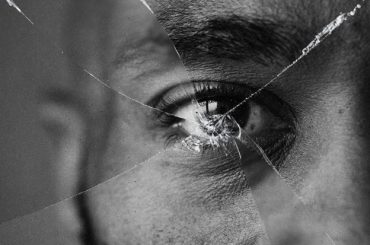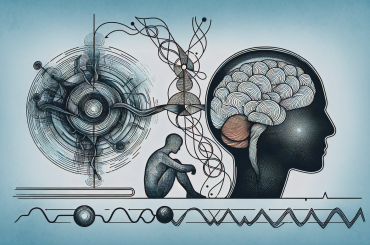Rewrite your story, you get to choose again
I was raised in a middle-class loving family, where my parents were doing the best that they could do in terms of providing for my needs. Financially, I had all the comforts one would wish for but emotionally I fell victim to what was taught to my parents by their parents, who again were doing the best taught by their parents, which I refer to as intergenerational trauma.
Dr. Gabor Mate has spoken about the effects of trauma on a young child regarding normal development. Dr. Mate references the fact that if you were trying to create a perfect profile for someone who would fall prone to addiction and mental illness, you would raise them with trauma, neglect and fear, and that would create the exact prescription for an “addict.”
Through no fault of my own, I was raised in an environment that was filled with constant chaos, mental illness and addiction ripping through three generations accompanied by fear, anxiety, abuse, and neglect.
It was disguised by the trappings of a good life, a mother and father who loved me, a comfortable home, vacations and more. Yet undermining my seemingly idyllic lifestyle, was the oppression of mental illness and addiction.
Based on my formative years I would have been a statistical anomaly had I not been affected, so it comes to me as no surprise that I sit here and write this blog.
This was my normal. I didn’t have any other frame of reference as to how other families functioned. I learned at a young age to adapt quickly in terms of how to survive in such an environment.
The survival skills that I learned at the tender age of 4, 8, and 12, have long been with me until I entered my own recovery in 1996. It’s been a slow and progressive unlearning of dysfunctional coping mechanisms, coupled with frustration and heartache.
As a mother of three adult children I too have made my mistakes, but the disclosure and honesty around my own addiction has prepared my children to adjust more smoothly when navigating their own personal journeys and challenges. When something is not working anymore, we have a responsibility to reach out for help and do something about our issues.
There were many nights when my children were young and I had to choose meetings over bedtimes. It broke my heart and further stigmatized my thinking around my addiction……there must be something wrong with me, rather than what had happened to me.
With lack of timely intervention my pathway was complex with multiple relapses. I was filled with shame and remorse from my personal history which fueled my confirmation biases that I didn’t fit in anywhere.
In time and with much self-exploration, hindsight taught me that my story is exactly that – a story – and I choose to rewrite my story knowing that it has prepared me for working with others in life.
Investing in your own self-care is non-negotiable in the early days and years of recovery, and it is still one of the basic tenants of my own recovery plan. I am clear that if I don’t practice self-care, I will see the world through a different lens, running the risk of an emotional relapse which will cause me to act out in unhealthy ways.
I was never able to understand how pervasive Addiction is seeping into just about every aspect of your life.
Addiction does not discriminate in any way. It impacts all social classes, gender, race, and age.
I am not trying to discredit any men’s trauma, abuse or neglect by saying this. However, it has been my experience that when getting to know women in meetings, rehab, and other support groups, women have unique issues in recovery compared to men. They are often victims of sexual and domestic abuse, and can be subjected to trauma, neglect, abuse, and experience tremendous emotional guilt, especially when it comes to parenting as compared to fathers.
Women often parent alone which can impede their own recovery process. How can a single mother get to a meeting if she can’t bring her child?
Self-care is often cited as a priority for anyone in recovery, but self-care for a single mother, is an oxymoron!
We need to do a better job to support our women in recovery as they are nurturers as well as our mentors for the next generation. In fact, if we invest in this generation of recovery with rehabilitation and support, we can impact the next 3-4 generations that follow; that to me, is powerful and we can break the cycle of dysfunctional family systems.
I am proud of the adversity I had to overcome, and more importantly, I have broken the cycle of further intergenerational trauma.
As a Recovery Advocate and a person in long-term recovery I feel I have a responsibility to disclose my history of adversity, with the hope that if my story can help one person suffer les, then that within itself is my main reason for sharing. This is the legacy that I wish to create, helping people to eradicate their suffering and supporting others to make healthier choices that lead to a fulfilled and productive life.
In celebration of Mental Health Awareness week in communities around the world, let’s celebrate out loud reducing the stigma that often accompanies mental illness and addiction. After all, if I was physically ill, wouldn’t you be there for me?
My life chose me; not the other way around. With time, dedication and commitment I have learned how to reparent myself, emotionally regulate, and have the confidence to show up fully in life.
How about you, do you care to join me?








